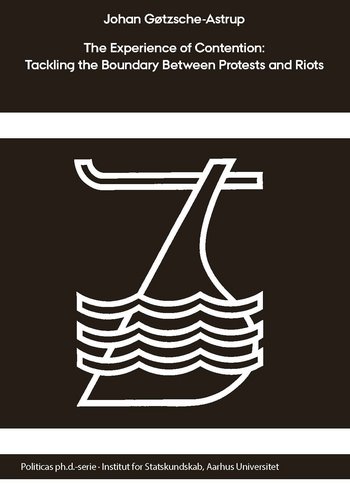Johan Gøtzsche-Astrup
The Experience of Contention: Tackling the Boundary Between Protests and Riots

Riots are recurring events in liberal democracies. Their aftermath is often characterised by a particular unease about the meaning of what just happened. What was it an instance of? More specifically, the unease revolves around the relation between protests and riots. Are riots distinct from protests or another manifestation of them? Instead of tackling this question through analytical distinctions, this dissertation takes the relation itself as an object of analysis. Focusing on England, it asks how the relation was constituted historically and is configured today. In pursuing this question, the dissertation develops a new perspective on the constitution of contention. That is, on how conflict is constituted and made intelligible in the extra-institutional area of social life. Empirically, the dissertation traces a shift in the relation at the turn of the 19th century. In the period’s parliamentary reform and police reform movements, riots moved from being an intelligible practice of contention to an unintelligible disruption of it. This shift was integral to a reconfiguration of contention itself. Contention changed from being an exercise of public spirit, which could encompass riots, to an orderly exercise of public inquiry, which was defined through its opposition to riots. The dissertation argues that this reconfiguration has become integral to the way that both the state and the public make sense of contention in general, and the relation between protest and riots in particular.
![]() Ophavsretten tilhører Politica. Materialet må ikke bruges eller distribueres i kommercielt øjemed.
Ophavsretten tilhører Politica. Materialet må ikke bruges eller distribueres i kommercielt øjemed.